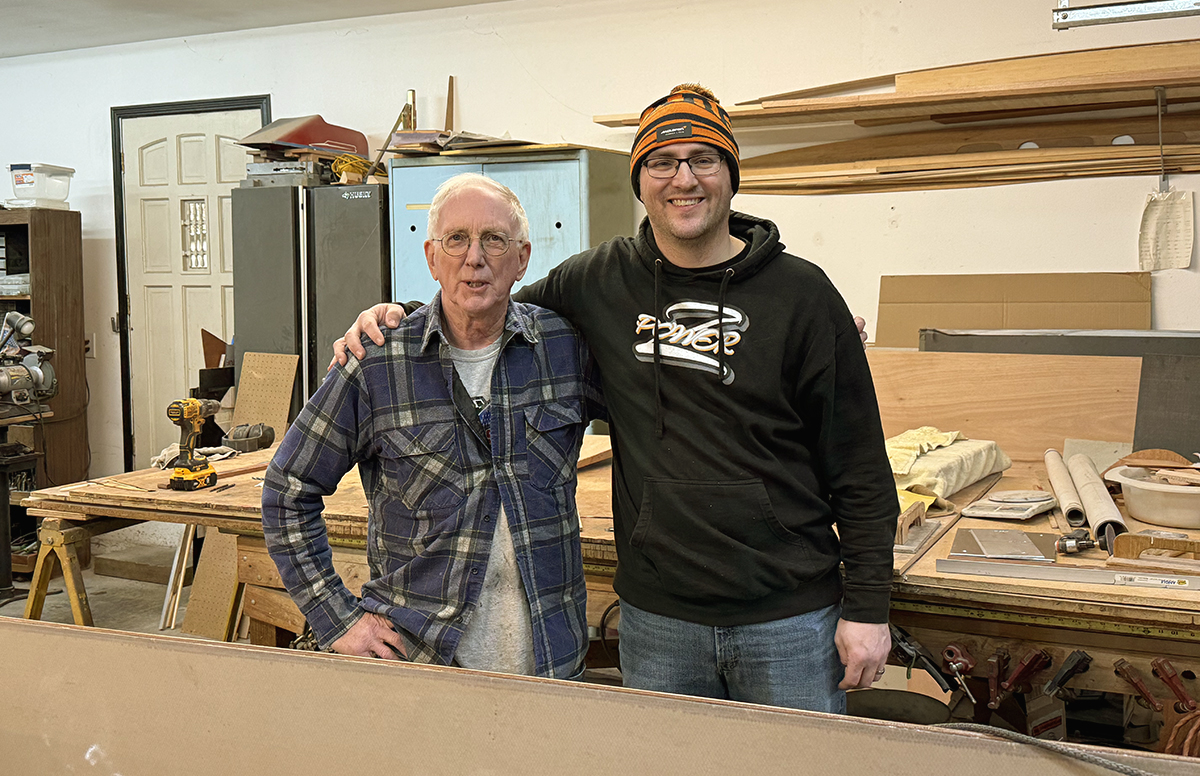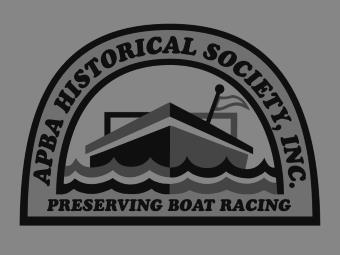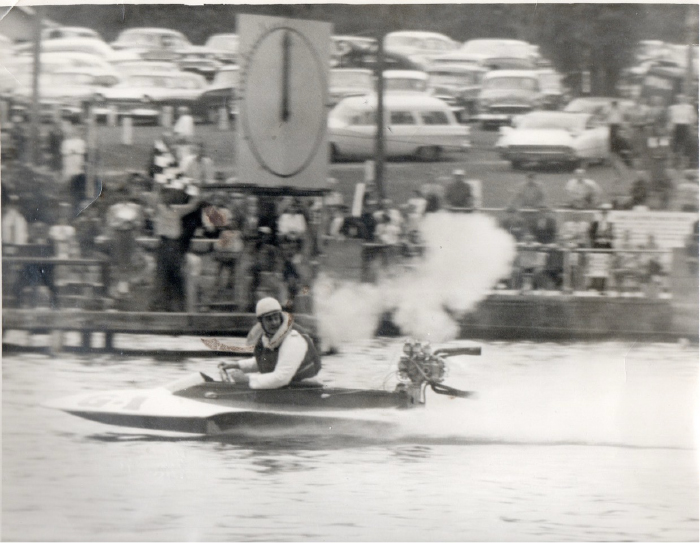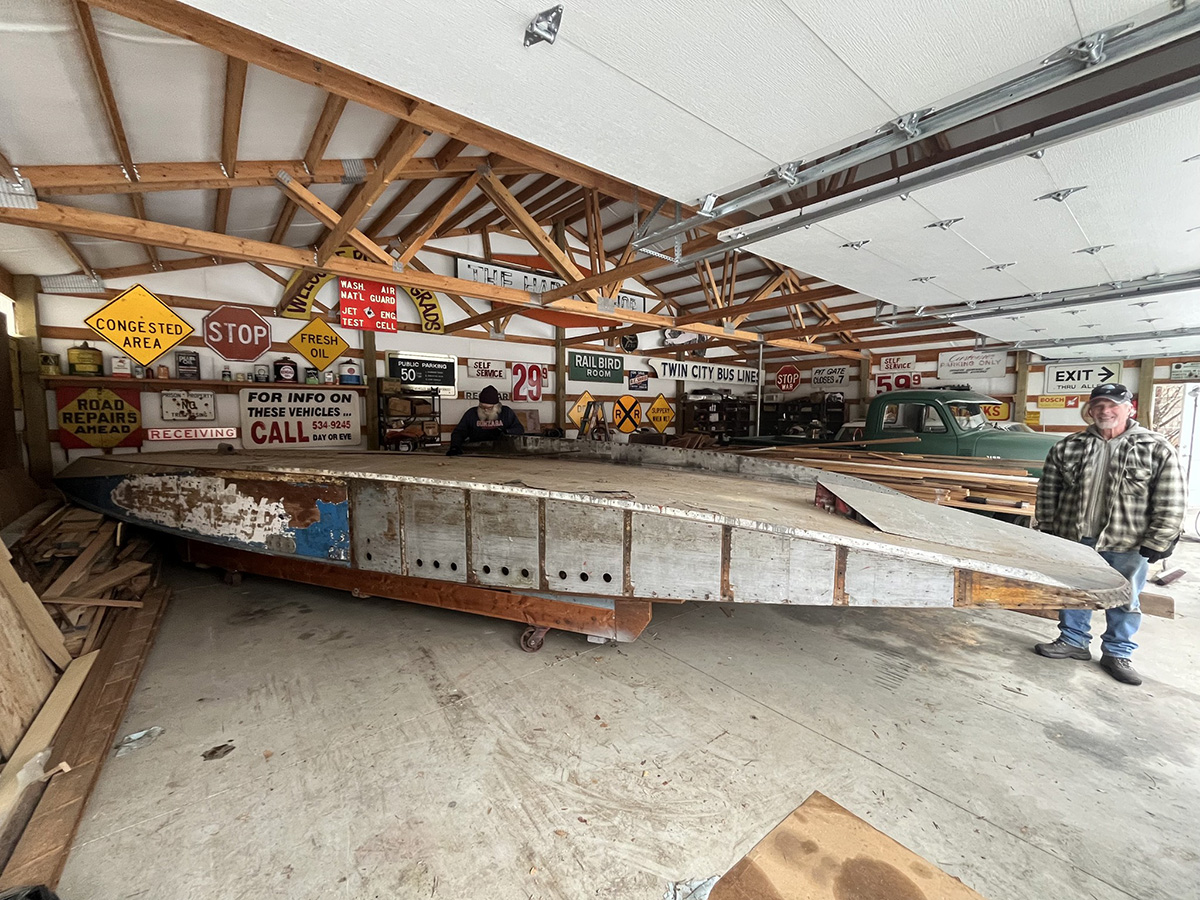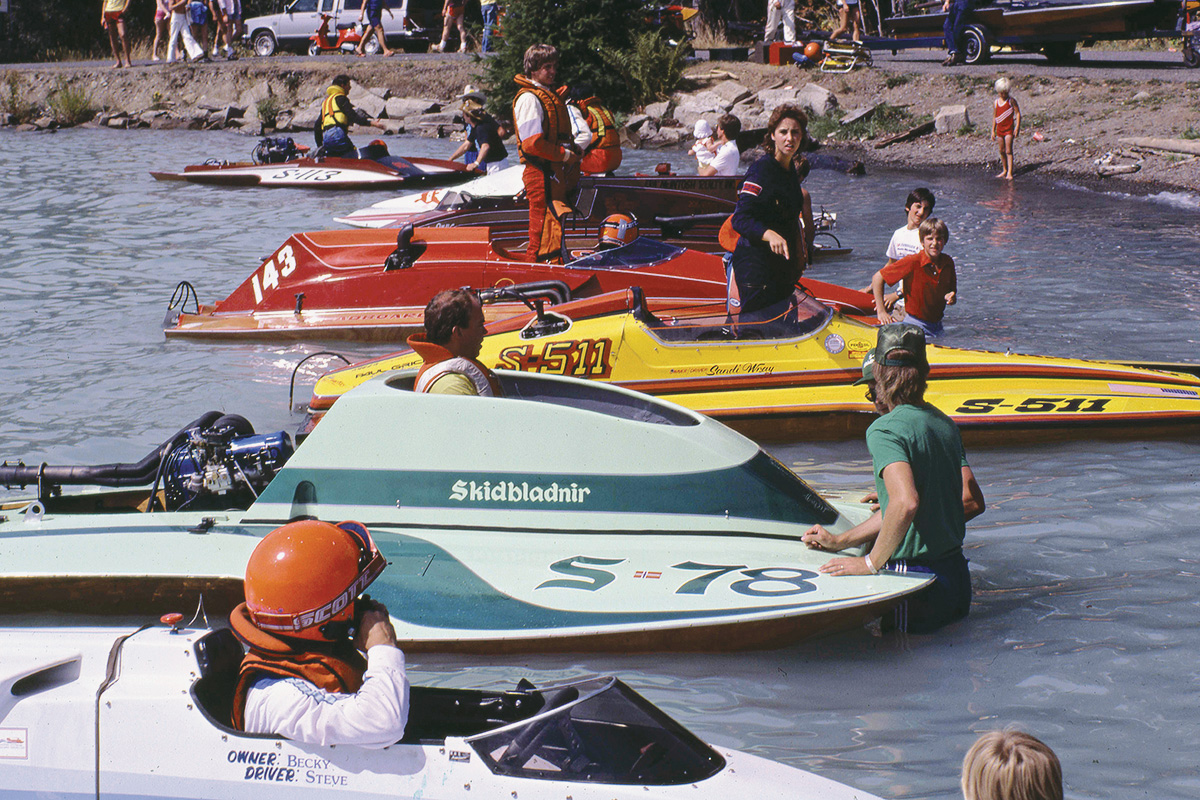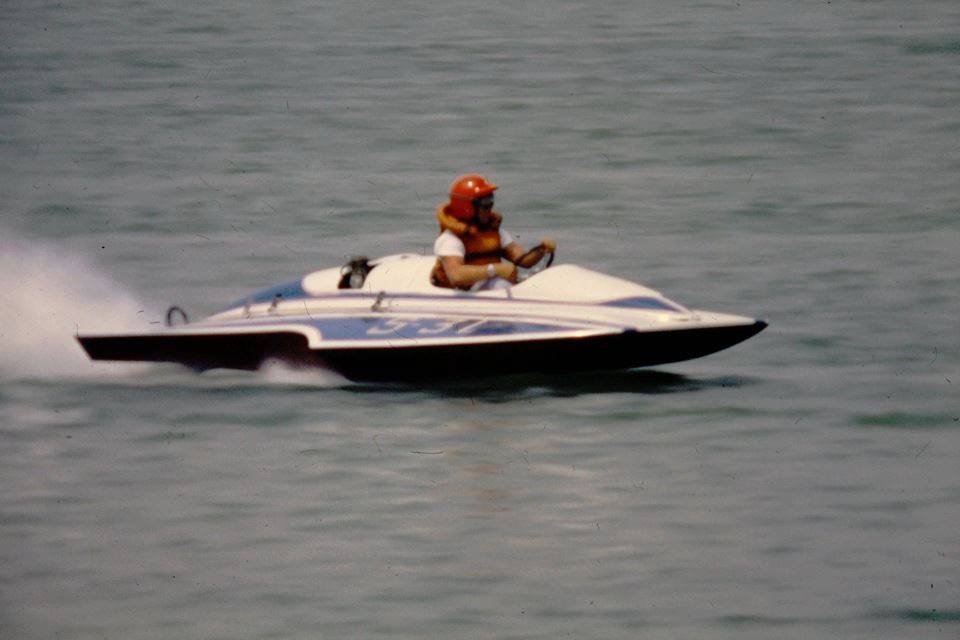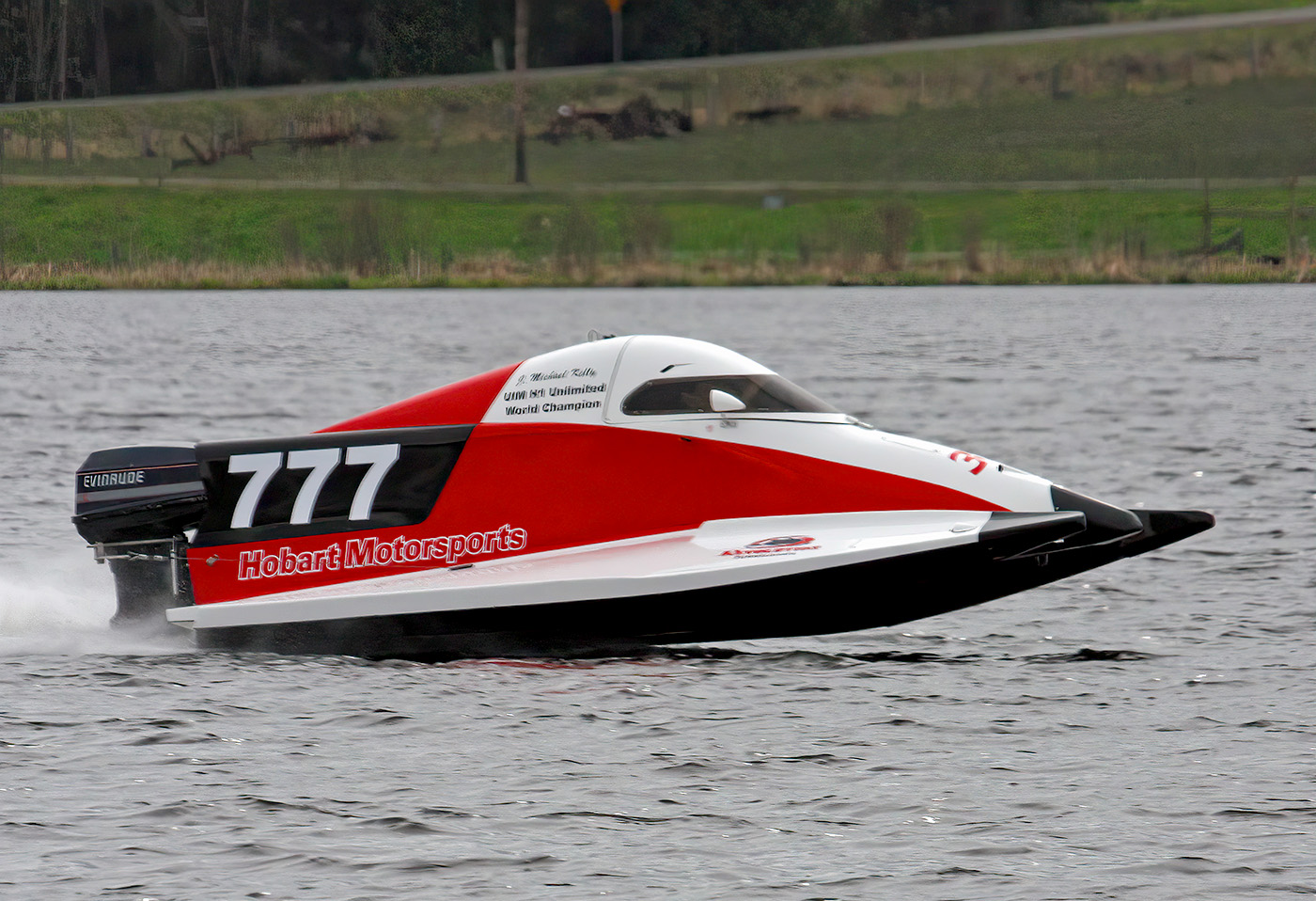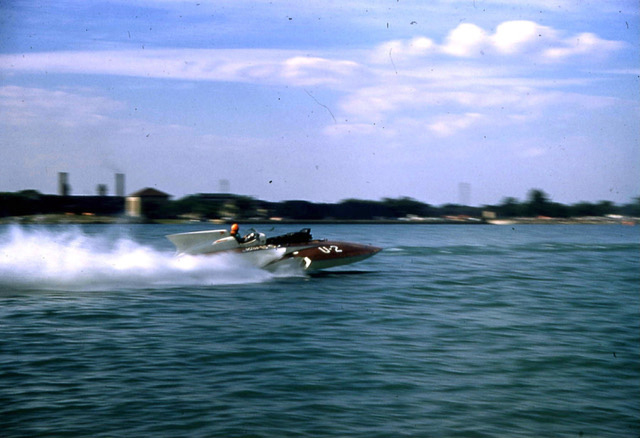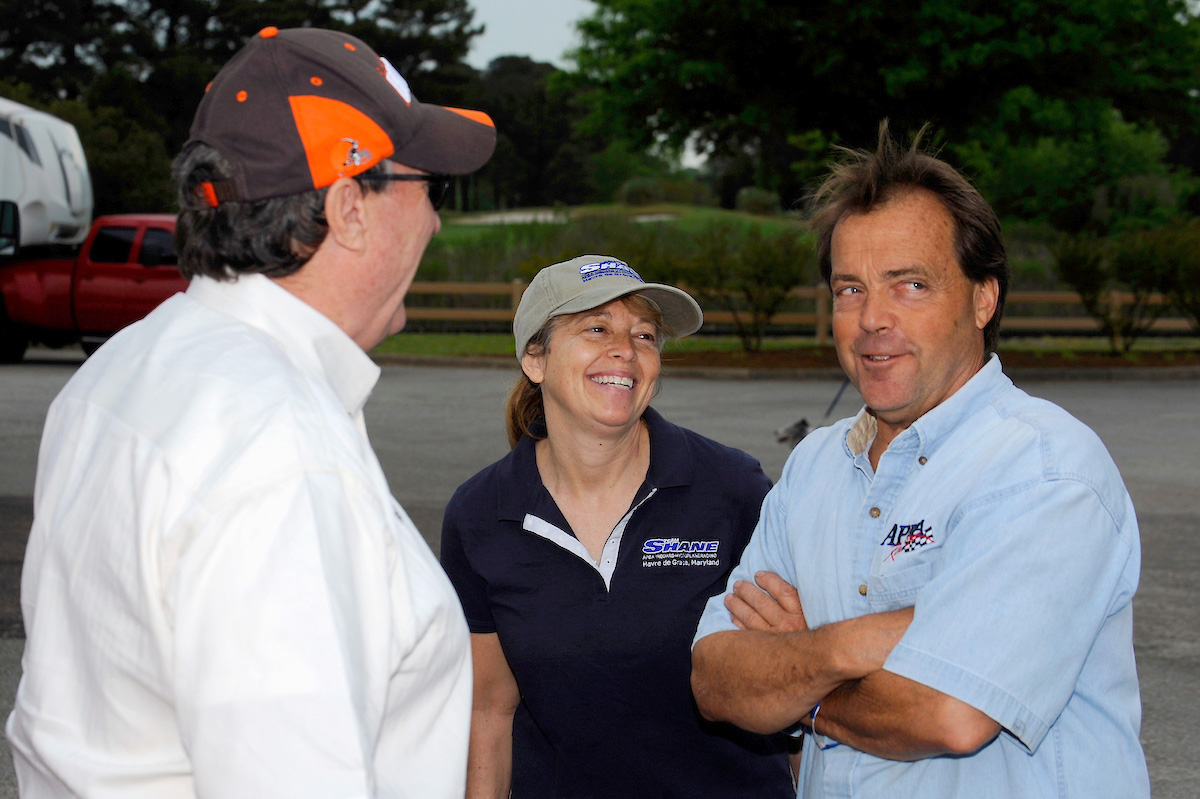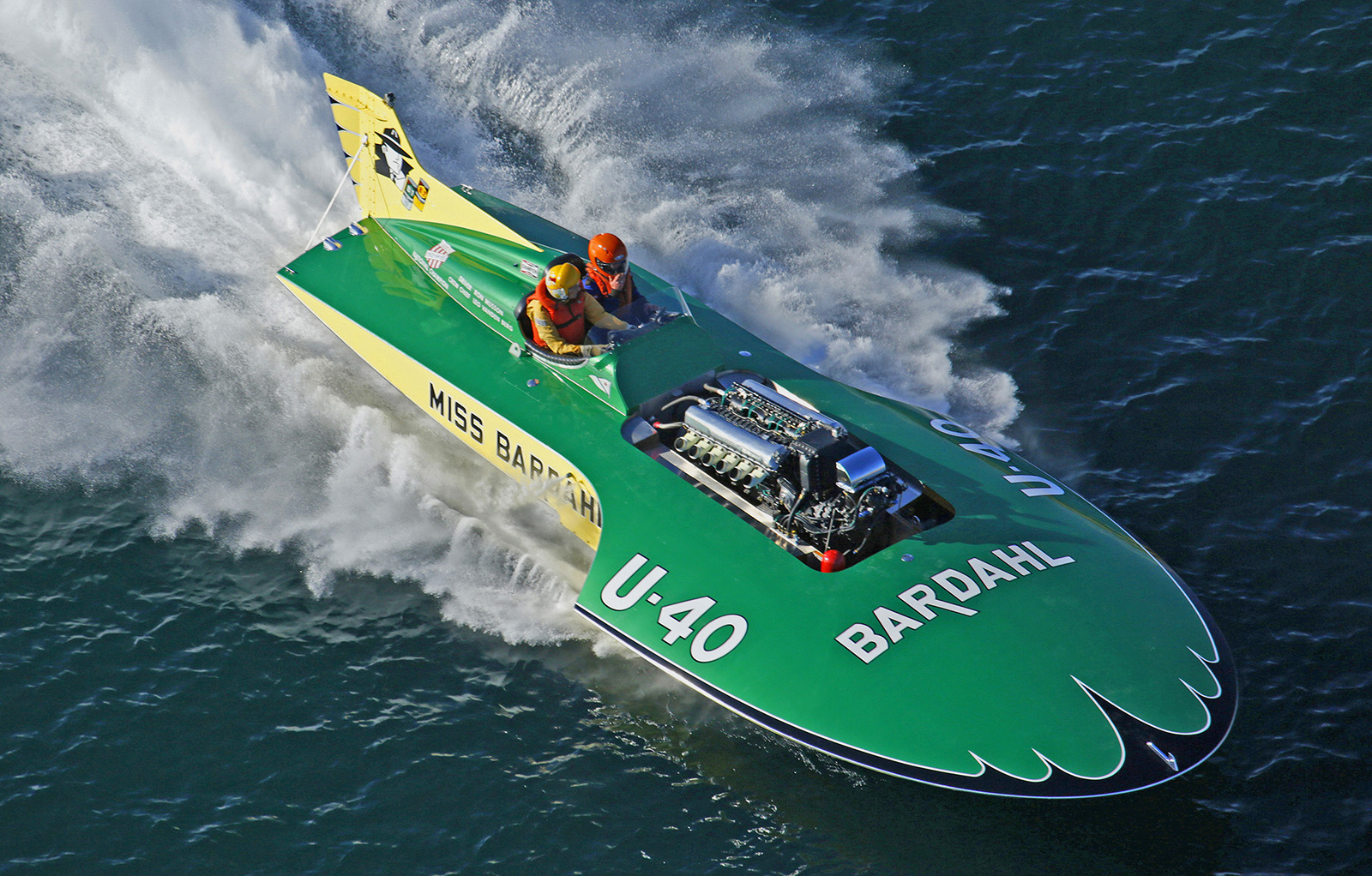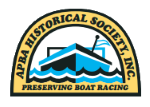A Referee’s Life in Boat Racing
July 31, 2024 - 2:29pm
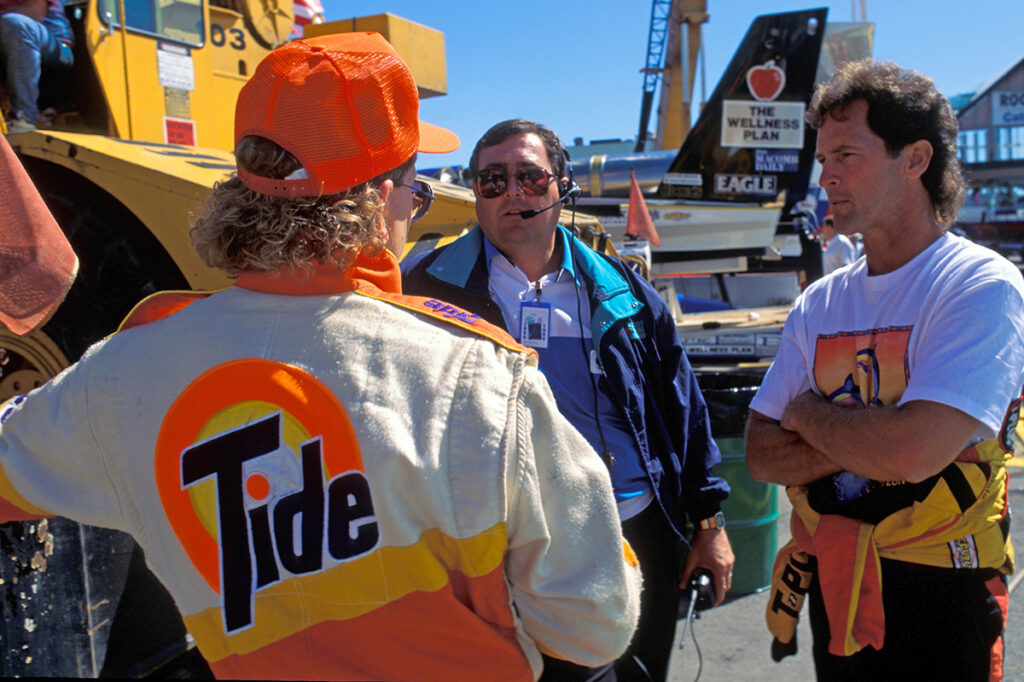
Nate Brown, Don Melillo and Steve David, Detroit 1994. ©F. Peirce Williams
By Craig Fjarlie
Don Melillo has been involved with boat racing most of his adult life. He has worked primarily as a referee, but also has served as Inboard Chairman. His involvement in various official and administrative positions is his way of giving back to a sport that has meant so much to him.
Melillo was born in Danbury, Connecticut.
“Growing up in Connecticut, I never knew about the boat races that used to be held in Danbury,” he recalls. “I was never introduced to boat racing until 1970. I moved to Ohio, went to school and met my wife, Cindy, and her brother. He had just gotten out of Stock Outboards and into Inboards. At the time he was driving a 280, what they call now the E-350. He made the mistake one day of saying, ‘I’m going to take Don to a boat race,’ and I’ve been going ever since.”
Cindy’s brother, Ted Williams, named his boat Screw Loose. “He was a big member of the Dayton Motorboat Racing Association when I first got involved,” Melillo explains. “I just fell in love with boat racing. My wife didn’t want me to become a driver, so I became an official. Worked my way up the system. I became an official in 1979. I had to do seven races in training. On my fifth wedding anniversary I went to Detroit, because they had the Unlimiteds up there, and other boats. I went to work that race and count it as one of my seven races as an apprentice. I had to do whatever the chief referee wanted me to do.”
Melillo’s primary mentor was the late Paul McKee. “Paul was very active in Dayton Motorboat and American Power Boat Association at the time I became involved. He taught me everything—how to become a referee and how to be a good referee. I always respected his decisions and wanted to be like him. If he needed me in a tow boat, I was in a tow boat for him, or wherever he wanted me to be. Eventually, I was always his assistant at summer Nationals and places like that. Working under Paul was great, because you’re learning something every single race.”
In his early years as a referee, Melillo often worked races in the northern part of Region 6. “I actually lived in Cleveland. I would meet the group who were going to the Michigan races in the Toledo area and go up with them. It was a great program we had at the time. We could go boat racing every single weekend of the summer.”
Melillo understands that being a referee means he may have to make a call on someone who has been a friend in racing.
“I’ve officiated every category but Offshore,” he says. “The hardest thing about being an official is at times you have to make decisions and calls that some people don’t like. You know that by the end of the weekend someone’s not going to be happy with what you tell them, but it’s the responsibility that I took. I understand going into a weekend that someone may not like a call that I made against them, but it’s my job and that’s the way I give back to boat racing. I absolutely love giving back, and we don’t have many people standing in line wanting to be an official,” he adds.
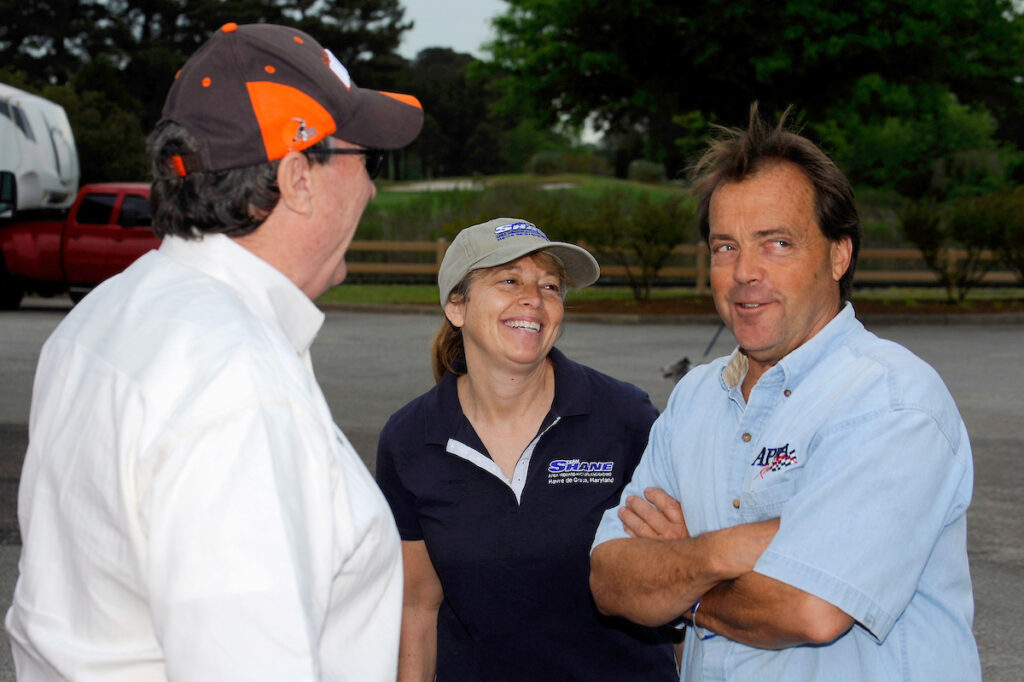
(L to R): Don Melillo, Robin Shane & Terry Browning, April, 17/18, 2010 APBA in Portsmouth, Virginia. (I don’t think Terry was buying what they were telling him.) ©F. Peirce Williams
Melillo tells about a time he was the referee at an Unlimited hydroplane race. “I remember years ago being called into the Bernie bus (a bus owned by Miss Budweiser owner Bernie Little) and Bernie telling me about a call. He looked at me and said, ‘You’re gonna change it, aren’t you?’ I go, ‘No.’ They say he still respected me, and you hope people respect you for what you do. That’s what I’ve always lived by.”
When Melillo was starting as a referee, he always enjoyed the flatbottom Inboard classes. “The speed they seemed to have in the old days, the K Boats and the Super Stocks—when they went out it was a thrill for the fans as well as for myself as an official. They had different tendencies, so I looked at the boats differently. I try to learn while I’m watching a race, even today.”
For a time, Melillo served as Inboard Chairman. “I had to fill probably the biggest shoes anyone ever had before them—Tony Scartine’s,” he says. “When I became Chairman, we had several fatalities. I was told by the APBA Board of Directors that either I had to do something about the safety of Inboard boats, or they were going to do something. I wanted us to control what would happen, so we came up with the reinforced cockpit. It has evolved with safety cells and the cockpits the way they are in boats today. We’ve made a lot of improvements. When you look at our sport, we haven’t had the problems with accidents that we had in the past.” Melillo credits improvements in hull design that have reduced the number of accidents. “I think the technology in the boats has become a lot better. When (a driver) starts to feel his boat lift, he can control it so better now than they ever could before.” He looks at outboard classes and offers his opinion. “Some of the fastest (outboard) classes do have cells, but really, the fastest classes all need cells.”
Another item that has changed the work of a referee is the use of drones. “I absolutely love the idea and the use of drones,” he confirms. “I’ve had the opportunity several times to use drone footage in helping make a call. It goes back to my days in a helicopter for the Unlimiteds. You can see so much more from up above than you can on the water level. The thrill of looking down at the boats and seeing it from a totally different perspective was really just amazing. A drone, yeah, you know something happened looking at it from water level, but a drone gives you the perspective on what really happened. At one race several years ago I rescinded a call on one driver ‘cause I saw some video. I couldn’t verify what I felt really happened from that video. I went home and looked at the video that was on TV and I said, ‘Yup, my assumption was right and who caused the problem, but I didn’t have enough information at the time to make the call correctly.’ I won’t make a call that is a maybe. If I’m working with turn judges and they say, ‘Well, this might have happened,’ ‘might have happened’ doesn’t happen. If I get an absolute, then I make the call.”
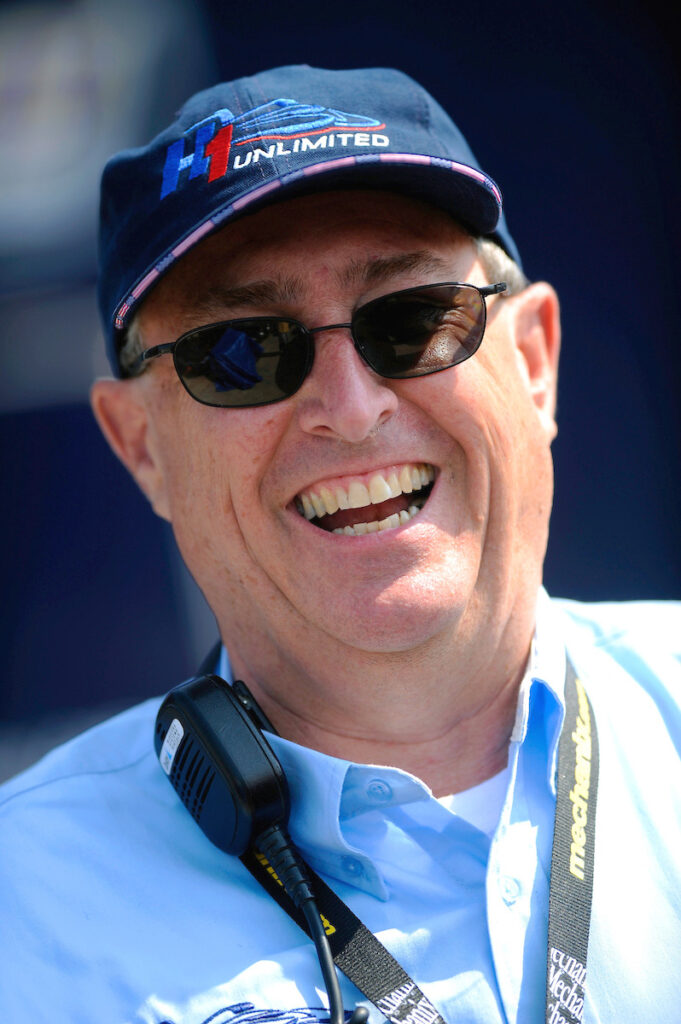
Don Mellilo at the 60th Madison Regatta, Madison, Indiana USA, July 3-4 , 2010. ©F. Peirce Williams 2010
Melillo ponders how to encourage more people to become involved with racing. “We have to do a better job of getting our young people involved with the sport,” he says with a sense of urgency. “I think some people are trying, but not enough people. I think that’s our problem right now—getting them involved and getting them to volunteer. I started out just helping at the races until I found out I could become an official. I used to hold boats in the water, and I thought that was all neat. It’s what I wanted to do; I just wanted to be involved with boat racing. My wife didn’t want me to drive because of the danger and I listened to her, but she had no problem with me going to the races and becoming an official.”
Melillo attended the races at Guntersville, Alabama, the last weekend of June 2024. “We’ve been married 50 years. That weekend was our actual 50th, but we had celebrated the previous weekend because she knew I wanted to come down here for the race. The wonderful wife that I have lets me go boat racing. We go on a couple of cruises a year, but she understands that I also love this sport.”
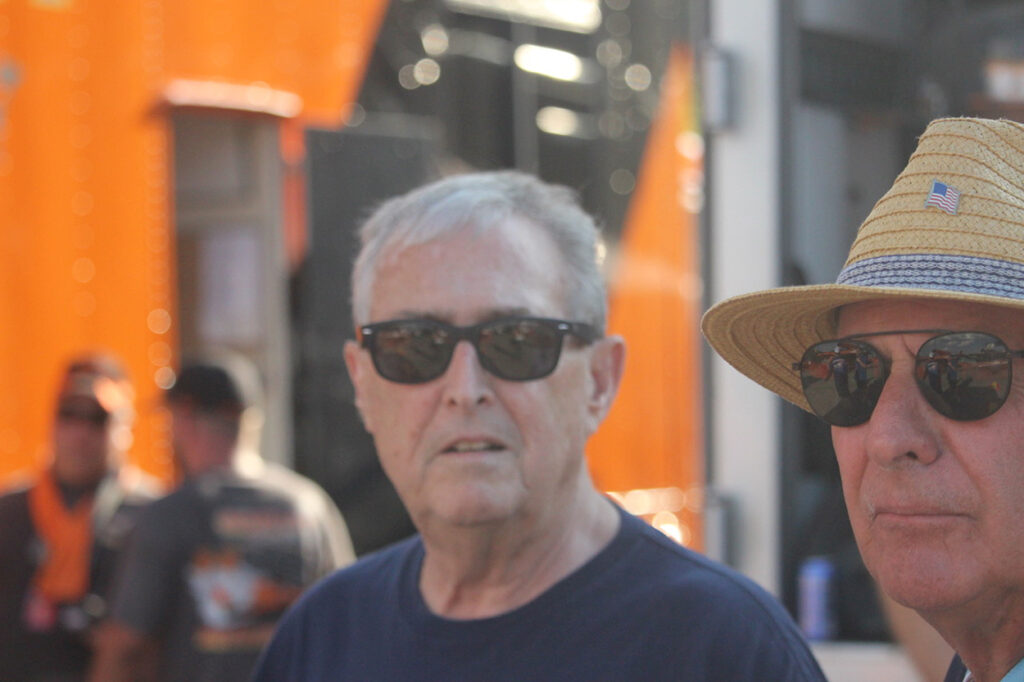
Don Melillo at Guntersville, Alabama, 2024. Craig Fjarlie pho
In addition to giving back to boat racing, Melillo gives back in other ways to the broader community. “Eleven years ago I had a liver transplant. I had cancer of the liver and my only option was a full transplant. I wouldn’t be doing this if I didn’t have my transplant. That taught me a lot about life. I wear a pin that says, ‘Donate Life,’ and meet people that comment on my pin because they know about the importance of organ tissue and eye donation. I meet with patients once a week and I tell them, ‘You didn’t have a transplant just to stay in the house.’ Trust me, I don’t stay in the house.”
Melillo is the referee at the 2024 Inboard Nationals in Hampton, Virginia. “I stay involved with boat racing. I like the thrill of seeing the boats on the water, but so much, too, is about the people in racing. Without the people, boat racing would be nothing to me. I absolutely love seeing everyone. Maybe I only see them once a year at their race, or whenever, but it’s important to meet the people, say hello to my old friends and just enjoy their company, whether it be one or many hours.”
Don Melillo truly found his niche in life, helping at boat races. “That’s how I feel,” he acknowledges. “I can’t go to a race and not help.”
Featured Articles
